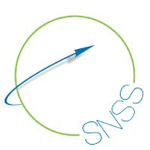Speaker
Prof.
Matthew Helgeson
(UCSB)
Description
The ability to control phase separation in molecular media (including metals, ceramics, minerals and polymers) is a conserved motif for designing mesostructured materials that spans antiquity, modern technology and the natural world. In particular, sophisticated quenching and annealing strategies to create bicontinuous or hierarchical morphology have allowed for the creation of materials with significantly enhanced mechanical and transport properties.
However, developing such processing strategies for colloids poses significant challenges, including relatively slow dynamics and a lack of scalable material systems in which colloidal interactions can be actively tuned and quenched. To overcome these challenges, we have developed a colloidal system based on stimuli-responsive, self-assembling nanoemulsions that allows for fine control over their interdroplet attractions and resulting colloidal phase separation.
We have used these nanoemulsions to understand how long-range, thermoreversible colloidal attractions can be used to assemble droplets into arrested bicontinuous liquid template structures with controlled length scales of porosity.
Here, I will show how neutron scattering measurements, and accompanying statistical mechanical modeling, have been critical to understanding the colloidal interactions and assembly mechanisms that underlie these new quenchable colloidal gels. Furthermore, we find that controlling arrested phase separation in these gels results in significantly enhanced mechanical toughness.
Finally, I will show how we use advanced “rheo-SANS” methods, which combine rheological measurements with in situ neutron scattering, to understand the mesoscale processes that give rise to superior mechanical properties

